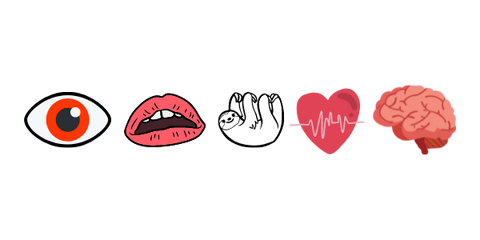Cannabis is a complex plant, chock full of hundreds of different potentially therapeutic compounds. Emerging bodies of research suggest that the aromatic terpenes that give cannabis its signature fragrance may also have health benefits. Plus, there are dozens of various cannabinoids, all with their own unique effects.
The cannabis industry primarily focuses on CBD and THC, and we get it; we love these cannabinoids too. But what about some of the lesser-known cannabis compounds? They deserve some love too. So, let’s take a look at one of our favorite obscure cannabinoids, delta 8 THC.
What Is Delta 8 THC?

You’ve likely heard of THC, the intoxicating cannabinoid known to produce the high associated with marijuana use. But did you know that the full name for THC is delta 9 tetrahydrocannabinol? You’ll notice that this name is incredibly similar to our feature cannabinoid, delta 8 tetrahydrocannabinol. In fact, it’s only one number off.
That one number refers to the location of the double bond in the molecule’s carbon chain. In regular delta 9 THC, that double bond is located on the 9th carbon. With delta 8, it’s on the 8th carbon. Other than that one double bond, delta 8 and delta 9 are molecularly identical.
Can such a subtle difference in chemical structure actually make a difference in the compound’s effects? Let’s find out.
Does Delta 8 THC Get You High?

Most people in the cannabis community associate delta 9 THC with getting high. Since delta 8’s chemical structure is so similar, is it fair to assume that delta 8 is intoxicating as well?
Unlike CBD, delta 8 THC does produce some intoxicating effects. However, it’s not exactly the same high as regular delta 9. The delta 8 THC feeling is usually described as more mellow and less cerebral intoxication than conventional delta 9. Anecdotally, users report feeling mildly euphoric and some body sensations. Often the brain fog, anxiety, and shifts in perception that come with a delta 9 high aren’t present in delta 8.
It’s important to note that cannabinoids will affect everyone differently, and while many report similar experiences with delta 8, effects can vary from person to person.
Is Delta 8 Legal?

The legality of delta 8 THC is somewhat hazy.
The 2018 Farm Bill federally legalized cannabis plants with less than 0.3% delta 9 THC, which means that delta 8 THC is technically federally legal so long as it comes from a low delta 9 THC plant. Things get complicated because delta 8 is only present in such low levels, which means it’s often synthesized from delta 9 THC, which is technically illegal.
Plus, as with all cannabis products, states ultimately decide how to regulate delta 8. Over 10 states have already formally banned the cannabinoid, and even more have instituted strict regulation on its sale and use.
Click here to find out if delta 8 is legal in your state.
Delta 8 Side Effects

Delta 8 is extremely similar to delta 9, which means it will have similar side effects. Typical side effects include:
-
Red eyes
-
Dry mouth
-
Decreased reaction time
-
Increased heart rate
-
Memory interference
However, because delta 8 is only naturally present in extremely small amounts, many delta 8 manufacturers produce the compounds synthetically, which can introduce potentially harmful unknown byproducts. When buying delta 8 THC, always look for lab-tested products from reputable brands.
Delta 8 Benefits—Can Delta 8 Help With Pain?
So what is delta 8 good for besides recreational use?
There’s little in the way of scientific research specifically investigating the health effects of delta 8 THC. However, the studies we have suggest that delta 8 may have potential pain-relieving properties. For example, one 2018 study found that delta 8 THC helped reduce pain in rodents with eye injuries.
Like conventional delta 9, delta 8 THC activates the CB1 cannabinoid receptors in the endocannabinoid system. Research suggests that this activation can potentially alter how we perceive pain, ultimately helping to alleviate suffering.
Because the intoxicating effects of delta 8 THC are generally considered milder than delta 9, patients who are already using THC to help manage pain may find that delta 8 offers similar levels of relief, with reduced feelings of intoxication.
As we discover more about how delta 8 impacts the endocannabinoid system, we will hopefully learn more about the pain-relieving effects of delta 8.

